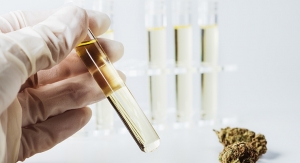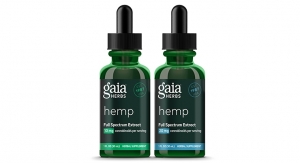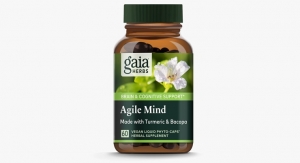By Frieda Wiley, PharmD, Contributing Writer07.03.19
In 2017, the global nutraceuticals industry enjoyed a revenue of $200.2 billion and showed no signs of slowing down. In fact, the market is projected to explode to a $317.3 billion industry worldwide market by 2024, according to Zion Market Research.
Total consumer spending on herbal dietary supplements in the U.S. reached an estimated $8.085 billion in 2017, according to analysis reported in HerbalGram, the American Botanical Council’s (ABC) quarterly, peer-reviewed journal. This marked the first time total U.S. retail sales of herbal supplements have surpassed $8 billion. In addition, the 8.5% increase in total sales from 2016 is the strongest growth for these products in more than 15 years.
Increasing public interest in natural health and wellness products has led to widespread adoption of dietary supplements in general, and herbal products specifically. In order to ensure the long-term health of the marketplace, quality assurance is critical, experts have noted. This article explores some of the pain points associated with a fast-growing industry.
Testing Challenges
The nutraceuticals industry wrestles with many growing pains, perhaps the greatest of which are assessing and verifying the quality and authenticity of raw materials. Some of these problems originate at the federal level, as the FDA lacks adequate staffing to fully enforce the Dietary Supplement Health and Education Act of 1994. Currently, the agency’s regulatory actions seem to center more on conducting industry surveillance of marketing claims while lagging in auditing facilities for Good Manufacturing Practices (GMP) mandated by the “DS CGMP rule,” or 21 CFR part 111.
These federal deficiencies have created a climate in which the natural products industry faces limited accountability for quality outages—circumstances that engender an environment where product quality variances abound.
“What surprises me most about quality materials is the amount of effort that goes into ensuring and demonstrating that a material is indeed of high quality,” said Elan Sudberg, CEO of Alkemist Labs. “Samples are great, but what matters most is what is testing the finished product.”
Experts agreed that verifying and testing raw materials are essential components of quality assurance, although the methods of doing so may vary among organizations. To help halt counterfeited or adulterated products from entering the consumer pipeline, Sandra Carter, founder of Om Mushrooms, said third-party testing for bioactive and nutritional compounds is critical—even more so with high-trending ingredients in which shortages may occur.
Limited supplies of such items coupled with surging consumer demands may prompt some suppliers to cut corners in quality assurance checks or engage in counterfeiting practices. Many corporations test the raw materials in-house with or without third-party verification, employing techniques such as DNA sequencing, high-performance thin-layer chromatography (HP-TLC), liquid chromatography/mass spectrometry-mass spectrometry (LC-double mass spectroscopy), infrared spectroscopy, compositional analysis, and/or microscopic inspection.
Regardless, even the most specific analytical techniques are controversial and subject to error. For example, Sudberg said DNA testing is a highly specific tool that analyzes 100 data points on a simple spec, but Jonathan Selzer, PhD, vice president of scientific affairs at Bio-Botanica, pointed out that the process is so sensitive that cross-contamination from animals and birds in the fields where the plants grow can skew results.
Lack of quality assurance enforcement also promotes highly variable levels of testing stringency among manufacturers. For example, after establishing a relationship with the supplier, some companies may resort to skip lot testing in which they mainly rely on the suppliers’ certificates of analysis (COA) and randomly spot test a small number of the lots received. However, Jeremy Stewart, PhD, scientist and vice president of scientific affairs at Gaia Herbs, cautioned against this practice, stating that GMP standards specify that manufacturers conduct identity tests on each ingredient received.
“Skip lot testing is cheaper in terms of time and effort,” Stewart said. “However, Gaia Herbs believes there are too many variables that go into growing and harvesting plants that can cause inconsistencies from lot to lot; so we believe it’s of utmost importance to test every single lot to ensure the highest quality.”
Cost sometimes contributes to the adulteration and misbranding of raw materials. For example, if scientific evidence showed that a 1,500 mg total daily dose of Echinacea angustifolia root yields 0.5% of isobutylamide—a constituent that produces the herb’s signature immune-potentiating therapeutic effect—a supplier might substitute the more expensive E. angustifolia root with the leaf of the herb’s cheaper sibling, E. purpurea.
The end result may be a more affordable product, but a once-daily, 150 mg dose of the less-potent E. purpurea is not therapeutic. Roy Upton, RH, DipAyu, executive director of the American Herbal Pharmacopoeia, cautioned that this problem is compounded by the fact that, despite being scientists, most research and development professionals working for natural products companies are not herbalists or practitioners trained in the intricate nuances of dosing herbal products.
Another contributing factor is that the majority of suppliers are, as Upton put it, “brokers” who frequently purchase numerous extracts from numerous sources. Having so many sources supplying raw materials, makes tracing a product back to its original source virtually impossible.
According to Beth Lambert, CEO of Herbalist & Alchemist, the impact of geopolitical factors on cost and product availability are often overlooked.
“Tariffs and political uncertainty are extremely challenging, especially for a company such as ours that uses a broad range of herbs from the traditional medicine system for many countries,” Lambert said.
Sustainability Challenges
In addition to cost- and supply-related limitations, sustainability issues present ethical dilemmas. The overharvesting of some plants, such as Echinacea angustifolia, goldenseal (Hydrastis canadensis), black cohosh (Actaea racemosa), and American ginseng (Panax quinquefolius) has landed these and other herbs on the United Plant Savers “At risk” list. Herbalist Lauren Kallmeyer, MA, MS, said this situation has been exacerbated by pricing of these raw materials in the marketplace.
“Current forest populations of these herbs are being harvested at a rate that will not sustain future populations of these herbs,” she said. “To make matters worse, the relatively low price of many of these herbs, such as black cohosh, does not reflect its increasing rarity in the wild.”
With no enforceable regulations in place to help prevent otherwise impending extinction of these plants, the responsibility of exercising sustainable harvesting practices then falls upon manufacturers and is non-obligatory.
Chase Millhollen, global sourcing manager for Gaia Herbs, attributed some of the supply shortages to inconsistent crops as a direct consequence of climate change. As a result, the company cannot rely on single suppliers to meet its production demands—a practice Millhollen said introduces additional hurdles because few suppliers meet the company’s stringent quality standards.
Wilson Lau, vice president of Nuherbs, said his company chooses not to harvest herbs that are not sustainable. He offered Cistanche deserticola as an example.
“We haven’t found a good way to ensure that it’s obtained in a way that preserves future sustainability,” Lau said.
Conversely, Nuherbs is considering reincorporating Dendrobium back into its inventory—thanks to a partnership with another company that devised an eco-friendly technique to grow the plant from germplasm to plant.
For Shaheen Majeed, president worldwide of Sabinsa, lack of planning creates a major pitfall in countering sustainability issues.
“Sustainability is more encompassing than some people realize,” Majeed noted. “It’s more than making sure that a plant isn’t over-harvested to extinction; it’s about thinking far ahead to make sure you can meet supply in five or 10 years, with healthy harvesting practices in place for the future—not just the next shipment.”
Majeed said the industry-wide lack of transparency regarding where the raw material was sourced and sustainability of products harvested also hinder quality assurance.
The biodiversity of growing conditions, the nutritional profile of the soil, humidity, climate, and weather patterns all affect the potency of plants. The potency and profile of the same plant harvested from the same plot of land may vary simply due to fluctuations in weather. According to Lambert, uncertain weather patterns are another pain point, citing how wildfires in the Northwest wiped out the spring supply of the wild-crafted herb horsetail. Product developers should recognize that plants within the same species are not interchangeable on the label despite sharing similar properties.
Harvesting, Storage & Processing Alter Potency
Perhaps one less-obvious or less-explored factor that limits potency of a product is the method in which the herbs are processed, namely the drying time. “Each herb has an optimal drying time and temperature that can be very challenging to get right,” noted Kallmeyer. “Ideally, herbs should be dried quickly and then quickly processed into their end-product after drying, but herbs sourced from around the globe often may sit in warehouses for months and sometimes years before being delivered to the manufacturer.”
Some corporations take meticulous measures to preserve product potency—even if it reduces efficiency and results in a more expensive product. For practical reasons, many companies extract herbs using solvents such as hexane, acetone, and methanol. These organic compounds are relatively cheap and extract herbs quickly, but Stewart warned that these processes leave residual solvents that consumers end up ingesting. Gaia Herbs uses only ethanol, water, and carbon dioxide to extract constituents from raw materials. Stewart said this method is gentler and produces higher-quality extracts by minimizing the potential for residual solvents or byproducts that consumers might ingest. However, the process is slower and more expensive, as it requires more herbs to extract the necessary compounds.
COA: Not A Fool-Proof Quality Check
In theory, certificates of analysis (COAs) offer manufacturers detailed, third-party-derived information regarding the makeup of raw materials used and the presence of contaminants. The document should include a description of the certified reference material used, a certified reference material code, and batch number. Additionally, the document should offer a detailed account regarding the degree of homogeneity of raw material in addition to its information regarding unidentifiable substances found in the sample and their respective quantities. Unfortunately, organizations cannot always rely on these reports to be honest.
“Anyone can make any type of extract they want, and much of what is on the market is really poor quality because of it,” said Upton. With zero guidance to standardize what constitutes a good or poorly made extract, some suppliers sell extracts of marcs and highly diluted extracts. Third-party analytical labs may manipulate the data presented on a COA to reflect client expectations regarding the concentrations of various ingredients—a process called “dry-labbing.”
“I’ve seen first-hand cases where an extract manufacturer fabricates a COA to model whatever a customer wants down to the extract strength, composition, and presence or absence of solvents,” noted Upton.
According to Cathy Rosenbaum, PharmD, MBA, CHC, a holistic clinical pharmacist and founder/CEO of Rx Integrative Solutions, third-party testing companies such as the United States Pharmacopeia (USP) and NSF International tend to be trustworthy, but one telltale sign of a third-party lab’s integrity is the degree of transparency and willingness to respond to answers regarding their quality testing practices.
Rosenbaum recommended asking third-party verifiers whether they use TLC, mass spec, GC, and IR, and if they have other levels of quality testing such as DNA-authenticated mark.
Developing a Quality Strategy
Experts generally agreed that cultivating relationships with suppliers helps improve clarity and transparency regarding the quality of dietary supplements and herbal products, but Sudberg cautioned against relying solely on the integrity of such relationships to guarantee quality.
“It’s important to test a material each time it changes hands—even if relationships are strong,” Sudberg said.
At times, establishing and maintaining an open line of communication with the supplier may be met with some resistance.
“These may not be conversations your suppliers want to have, and if they don’t, move on,” Majeed warned. “If the supplier can talk about [the raw materials], go visit the facility, because nothing takes the place of an audit.”
While onsite audits are not quite as easy to conduct when suppliers are overseas, Majeed said there are still ways to analyze and prove authenticity and quality in such situations.
Verifying supplements requires a pool of resources and strategies. “Analysts have to know how to do a real quality assessment or test against a pharmacopeial standard, which is an independent marker of quality,” Upton said. Additional tips include:
Looking forward, Lambert said investing in sustainable harvest studies is imperative to industry survival. She noted that cross-functional collaborations between universities, non-profit organizations, government, and industry can foster authentic research to develop sustainable harvesting guidelines. She cited the osha research project recently completed by Kelly Kindscher, PhD, of the University of Kansas and funded by the American Herbal Products Association (AHPA) as one example. Kindscher won the organization’s Herbal Insight Award in 2019, and the AHPA Foundation is currently accepting proposals for goldenseal research.
Despite challenges, Lambert said she holds an optimistic view of the industry and its future.
“While there are some bad players in this industry, most are honest and strive to produce safe and high-quality products,” she said. “However, despite the best intention and quality control efforts, we’re all human and inadvertent mistakes can sometimes be made in multi-step sourcing and manufacturing processes.”
Her take-home message echoed that of many experts: verify, verify, verify.
Total consumer spending on herbal dietary supplements in the U.S. reached an estimated $8.085 billion in 2017, according to analysis reported in HerbalGram, the American Botanical Council’s (ABC) quarterly, peer-reviewed journal. This marked the first time total U.S. retail sales of herbal supplements have surpassed $8 billion. In addition, the 8.5% increase in total sales from 2016 is the strongest growth for these products in more than 15 years.
Increasing public interest in natural health and wellness products has led to widespread adoption of dietary supplements in general, and herbal products specifically. In order to ensure the long-term health of the marketplace, quality assurance is critical, experts have noted. This article explores some of the pain points associated with a fast-growing industry.
Testing Challenges
The nutraceuticals industry wrestles with many growing pains, perhaps the greatest of which are assessing and verifying the quality and authenticity of raw materials. Some of these problems originate at the federal level, as the FDA lacks adequate staffing to fully enforce the Dietary Supplement Health and Education Act of 1994. Currently, the agency’s regulatory actions seem to center more on conducting industry surveillance of marketing claims while lagging in auditing facilities for Good Manufacturing Practices (GMP) mandated by the “DS CGMP rule,” or 21 CFR part 111.
These federal deficiencies have created a climate in which the natural products industry faces limited accountability for quality outages—circumstances that engender an environment where product quality variances abound.
“What surprises me most about quality materials is the amount of effort that goes into ensuring and demonstrating that a material is indeed of high quality,” said Elan Sudberg, CEO of Alkemist Labs. “Samples are great, but what matters most is what is testing the finished product.”
Experts agreed that verifying and testing raw materials are essential components of quality assurance, although the methods of doing so may vary among organizations. To help halt counterfeited or adulterated products from entering the consumer pipeline, Sandra Carter, founder of Om Mushrooms, said third-party testing for bioactive and nutritional compounds is critical—even more so with high-trending ingredients in which shortages may occur.
Limited supplies of such items coupled with surging consumer demands may prompt some suppliers to cut corners in quality assurance checks or engage in counterfeiting practices. Many corporations test the raw materials in-house with or without third-party verification, employing techniques such as DNA sequencing, high-performance thin-layer chromatography (HP-TLC), liquid chromatography/mass spectrometry-mass spectrometry (LC-double mass spectroscopy), infrared spectroscopy, compositional analysis, and/or microscopic inspection.
Regardless, even the most specific analytical techniques are controversial and subject to error. For example, Sudberg said DNA testing is a highly specific tool that analyzes 100 data points on a simple spec, but Jonathan Selzer, PhD, vice president of scientific affairs at Bio-Botanica, pointed out that the process is so sensitive that cross-contamination from animals and birds in the fields where the plants grow can skew results.
Lack of quality assurance enforcement also promotes highly variable levels of testing stringency among manufacturers. For example, after establishing a relationship with the supplier, some companies may resort to skip lot testing in which they mainly rely on the suppliers’ certificates of analysis (COA) and randomly spot test a small number of the lots received. However, Jeremy Stewart, PhD, scientist and vice president of scientific affairs at Gaia Herbs, cautioned against this practice, stating that GMP standards specify that manufacturers conduct identity tests on each ingredient received.
“Skip lot testing is cheaper in terms of time and effort,” Stewart said. “However, Gaia Herbs believes there are too many variables that go into growing and harvesting plants that can cause inconsistencies from lot to lot; so we believe it’s of utmost importance to test every single lot to ensure the highest quality.”
Cost sometimes contributes to the adulteration and misbranding of raw materials. For example, if scientific evidence showed that a 1,500 mg total daily dose of Echinacea angustifolia root yields 0.5% of isobutylamide—a constituent that produces the herb’s signature immune-potentiating therapeutic effect—a supplier might substitute the more expensive E. angustifolia root with the leaf of the herb’s cheaper sibling, E. purpurea.
The end result may be a more affordable product, but a once-daily, 150 mg dose of the less-potent E. purpurea is not therapeutic. Roy Upton, RH, DipAyu, executive director of the American Herbal Pharmacopoeia, cautioned that this problem is compounded by the fact that, despite being scientists, most research and development professionals working for natural products companies are not herbalists or practitioners trained in the intricate nuances of dosing herbal products.
Another contributing factor is that the majority of suppliers are, as Upton put it, “brokers” who frequently purchase numerous extracts from numerous sources. Having so many sources supplying raw materials, makes tracing a product back to its original source virtually impossible.
According to Beth Lambert, CEO of Herbalist & Alchemist, the impact of geopolitical factors on cost and product availability are often overlooked.
“Tariffs and political uncertainty are extremely challenging, especially for a company such as ours that uses a broad range of herbs from the traditional medicine system for many countries,” Lambert said.
Sustainability Challenges
In addition to cost- and supply-related limitations, sustainability issues present ethical dilemmas. The overharvesting of some plants, such as Echinacea angustifolia, goldenseal (Hydrastis canadensis), black cohosh (Actaea racemosa), and American ginseng (Panax quinquefolius) has landed these and other herbs on the United Plant Savers “At risk” list. Herbalist Lauren Kallmeyer, MA, MS, said this situation has been exacerbated by pricing of these raw materials in the marketplace.
“Current forest populations of these herbs are being harvested at a rate that will not sustain future populations of these herbs,” she said. “To make matters worse, the relatively low price of many of these herbs, such as black cohosh, does not reflect its increasing rarity in the wild.”
With no enforceable regulations in place to help prevent otherwise impending extinction of these plants, the responsibility of exercising sustainable harvesting practices then falls upon manufacturers and is non-obligatory.
Chase Millhollen, global sourcing manager for Gaia Herbs, attributed some of the supply shortages to inconsistent crops as a direct consequence of climate change. As a result, the company cannot rely on single suppliers to meet its production demands—a practice Millhollen said introduces additional hurdles because few suppliers meet the company’s stringent quality standards.
Wilson Lau, vice president of Nuherbs, said his company chooses not to harvest herbs that are not sustainable. He offered Cistanche deserticola as an example.
“We haven’t found a good way to ensure that it’s obtained in a way that preserves future sustainability,” Lau said.
Conversely, Nuherbs is considering reincorporating Dendrobium back into its inventory—thanks to a partnership with another company that devised an eco-friendly technique to grow the plant from germplasm to plant.
For Shaheen Majeed, president worldwide of Sabinsa, lack of planning creates a major pitfall in countering sustainability issues.
“Sustainability is more encompassing than some people realize,” Majeed noted. “It’s more than making sure that a plant isn’t over-harvested to extinction; it’s about thinking far ahead to make sure you can meet supply in five or 10 years, with healthy harvesting practices in place for the future—not just the next shipment.”
Majeed said the industry-wide lack of transparency regarding where the raw material was sourced and sustainability of products harvested also hinder quality assurance.
The biodiversity of growing conditions, the nutritional profile of the soil, humidity, climate, and weather patterns all affect the potency of plants. The potency and profile of the same plant harvested from the same plot of land may vary simply due to fluctuations in weather. According to Lambert, uncertain weather patterns are another pain point, citing how wildfires in the Northwest wiped out the spring supply of the wild-crafted herb horsetail. Product developers should recognize that plants within the same species are not interchangeable on the label despite sharing similar properties.
Harvesting, Storage & Processing Alter Potency
Perhaps one less-obvious or less-explored factor that limits potency of a product is the method in which the herbs are processed, namely the drying time. “Each herb has an optimal drying time and temperature that can be very challenging to get right,” noted Kallmeyer. “Ideally, herbs should be dried quickly and then quickly processed into their end-product after drying, but herbs sourced from around the globe often may sit in warehouses for months and sometimes years before being delivered to the manufacturer.”
Some corporations take meticulous measures to preserve product potency—even if it reduces efficiency and results in a more expensive product. For practical reasons, many companies extract herbs using solvents such as hexane, acetone, and methanol. These organic compounds are relatively cheap and extract herbs quickly, but Stewart warned that these processes leave residual solvents that consumers end up ingesting. Gaia Herbs uses only ethanol, water, and carbon dioxide to extract constituents from raw materials. Stewart said this method is gentler and produces higher-quality extracts by minimizing the potential for residual solvents or byproducts that consumers might ingest. However, the process is slower and more expensive, as it requires more herbs to extract the necessary compounds.
COA: Not A Fool-Proof Quality Check
In theory, certificates of analysis (COAs) offer manufacturers detailed, third-party-derived information regarding the makeup of raw materials used and the presence of contaminants. The document should include a description of the certified reference material used, a certified reference material code, and batch number. Additionally, the document should offer a detailed account regarding the degree of homogeneity of raw material in addition to its information regarding unidentifiable substances found in the sample and their respective quantities. Unfortunately, organizations cannot always rely on these reports to be honest.
“Anyone can make any type of extract they want, and much of what is on the market is really poor quality because of it,” said Upton. With zero guidance to standardize what constitutes a good or poorly made extract, some suppliers sell extracts of marcs and highly diluted extracts. Third-party analytical labs may manipulate the data presented on a COA to reflect client expectations regarding the concentrations of various ingredients—a process called “dry-labbing.”
“I’ve seen first-hand cases where an extract manufacturer fabricates a COA to model whatever a customer wants down to the extract strength, composition, and presence or absence of solvents,” noted Upton.
According to Cathy Rosenbaum, PharmD, MBA, CHC, a holistic clinical pharmacist and founder/CEO of Rx Integrative Solutions, third-party testing companies such as the United States Pharmacopeia (USP) and NSF International tend to be trustworthy, but one telltale sign of a third-party lab’s integrity is the degree of transparency and willingness to respond to answers regarding their quality testing practices.
Rosenbaum recommended asking third-party verifiers whether they use TLC, mass spec, GC, and IR, and if they have other levels of quality testing such as DNA-authenticated mark.
Developing a Quality Strategy
Experts generally agreed that cultivating relationships with suppliers helps improve clarity and transparency regarding the quality of dietary supplements and herbal products, but Sudberg cautioned against relying solely on the integrity of such relationships to guarantee quality.
“It’s important to test a material each time it changes hands—even if relationships are strong,” Sudberg said.
At times, establishing and maintaining an open line of communication with the supplier may be met with some resistance.
“These may not be conversations your suppliers want to have, and if they don’t, move on,” Majeed warned. “If the supplier can talk about [the raw materials], go visit the facility, because nothing takes the place of an audit.”
While onsite audits are not quite as easy to conduct when suppliers are overseas, Majeed said there are still ways to analyze and prove authenticity and quality in such situations.
Verifying supplements requires a pool of resources and strategies. “Analysts have to know how to do a real quality assessment or test against a pharmacopeial standard, which is an independent marker of quality,” Upton said. Additional tips include:
- Use the whole plant whenever possible.
- Decrease field-to-bottle time to optimize product potency by buying locally whenever possible. Kallmeyer said this helps mitigate time-sensitive issues.
- Support infrastructures that encourage “forest farming to help ensure herbs are sustainably harvested.” According to Kallmeyer, this process offers the additional benefit of becoming a source of income for landowners. Distributors and manufacturers now have the option of sourcing “PCO Verified Forest Grown” herbs, which ensures they are produced in a sustainable, ethical, and legal manner. Pennsylvania Certified Organic and the Appalachian Forest Farmers website, www.appalachianforestfarmers.org has more information.
- In compliance with GMP regulations, never accept a COA without first conducting an appropriate audit to ensure that suppliers are doing their due diligence. Upton stressed asking suppliers specific questions about who performed the identification, what tests were used to determine quality, who developed quality assessment specifications, and the audit of data used to generate the COA.
- Plan for the future to help address supply and sustainability issues. For example, Sabinsa established an extensive cultivation program with fair trade policies that ensures adequate supplies of material are ethically acquired, and expanded its commitment to an innovative 10-year reforestation program for tree-derived ingredients.
Looking forward, Lambert said investing in sustainable harvest studies is imperative to industry survival. She noted that cross-functional collaborations between universities, non-profit organizations, government, and industry can foster authentic research to develop sustainable harvesting guidelines. She cited the osha research project recently completed by Kelly Kindscher, PhD, of the University of Kansas and funded by the American Herbal Products Association (AHPA) as one example. Kindscher won the organization’s Herbal Insight Award in 2019, and the AHPA Foundation is currently accepting proposals for goldenseal research.
Despite challenges, Lambert said she holds an optimistic view of the industry and its future.
“While there are some bad players in this industry, most are honest and strive to produce safe and high-quality products,” she said. “However, despite the best intention and quality control efforts, we’re all human and inadvertent mistakes can sometimes be made in multi-step sourcing and manufacturing processes.”
Her take-home message echoed that of many experts: verify, verify, verify.



























